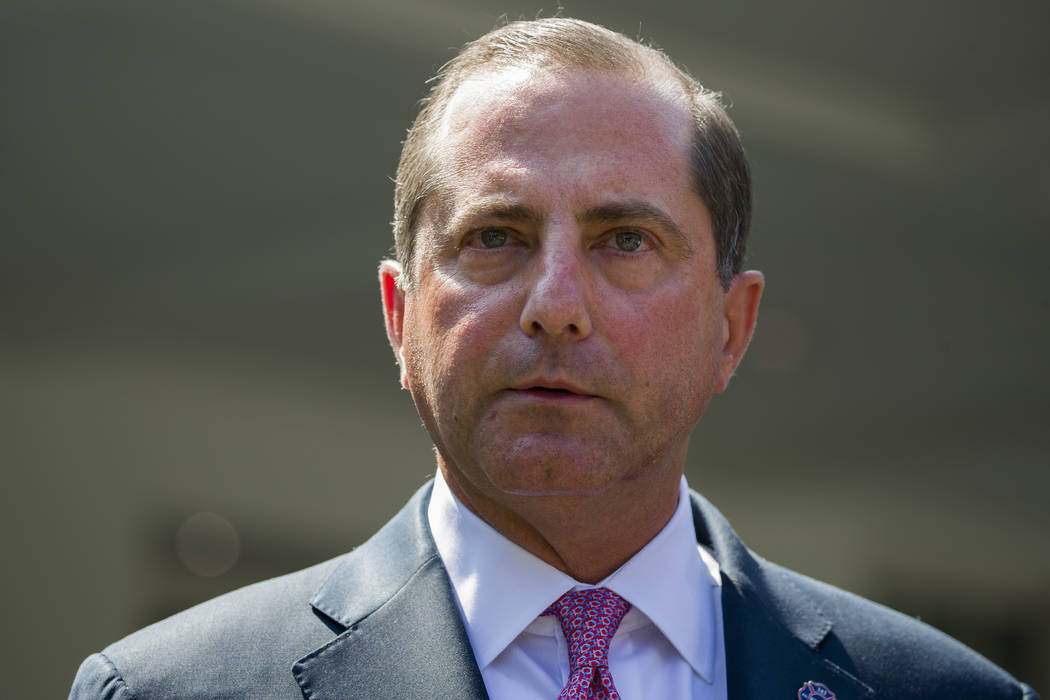Overhaul proposed for decades-old Medicare fraud rules
WASHINGTON — The Trump administration on Wednesday proposed overhauling decades-old Medicare rules originally meant to deter fraud and abuse but now seen as a roadblock to coordinating better care for patients.
The rules under revision were intended to counter self-dealing and financial kickbacks among service providers such as hospitals, clinics and doctors.
Those regulations are now seen as an obstacle to progress because Medicare has put a premium on coordination among care providers. Officials explained that the complex requirements of the original rules can have a chilling effect on hospitals and doctors working together.
A major focus is to try to improve follow-up care for patients after they are discharged from hospitals, an area in which Medicare is increasingly holding hospitals accountable.
Wednesday’s announcement starts a rule-making process expected to take months. The revised regulations run to an estimated 800 pages and will be pored over by lawyers for the health care industry, which has billions of dollars at stake. Patient advocates are keenly interested that consumer protections are not weakened.
Efficiency goal
Health and Human Services Secretary Alex Azar said the goal is to make the health care system more efficient, not to open the door to new types of fraud.
“We propose these changes with great appreciation for the intent of these statutes, which is preventing patients from being taken advantage of and taxpayer dollars from being misspent,” Azar said.
Officials said patients will ultimately benefit, because it should be easier to help them avoid foreseeable problems after hospitalization.
The Health and Human Services inspector general’s office is involved in rewriting one of the rules, which enforces an anti-kickback statute that it oversees.
Financial interest proposal
The other major revision involves a rule that forbids clinicians from referring patients to facilities in which they have a financial interest. That rule is named after a law passed by former longtime Democratic Rep. Pete Stark of California.
The rules apply mainly to federal programs like Medicare and Medicaid, but their impact is felt across the health care system.
Azar said the idea is to encourage hospitals, doctors and other service providers to enter into formal “value-based arrangements,” in which they collaborate to improve care for patients and commit to delivering measurable results.
For example, a hospital may send a kidney patient home with technology to monitor critical health indicators and automatically transmit back any signs of problems. Under existing rules, such an arrangement could be interpreted as the hospital providing the patient an illegal “inducement” to continue using its services.
Officials said the proposed revisions will:
— create new exceptions to the self-referral and anti-kickback rules for value-based arrangements
— update existing exceptions
— generally clarify the rules themselves.
One new exception involves cyber-security technology, Medicare Administrator Seema Verma said. The goal is to allow hospitals to share cyber-security technology with medical practices that they deal with, improving protections across the health care system.
It’s unclear how much money the revised rules are expected to save the health care system. Officials said it depends on the degree to which hospitals and other service providers voluntarily enter into the new, protected arrangements.
The original rules date to when Medicare paid piecemeal for each service delivered. The program has been shifting to paying an overall amount for major types of procedures, which is tied to quality results.

















